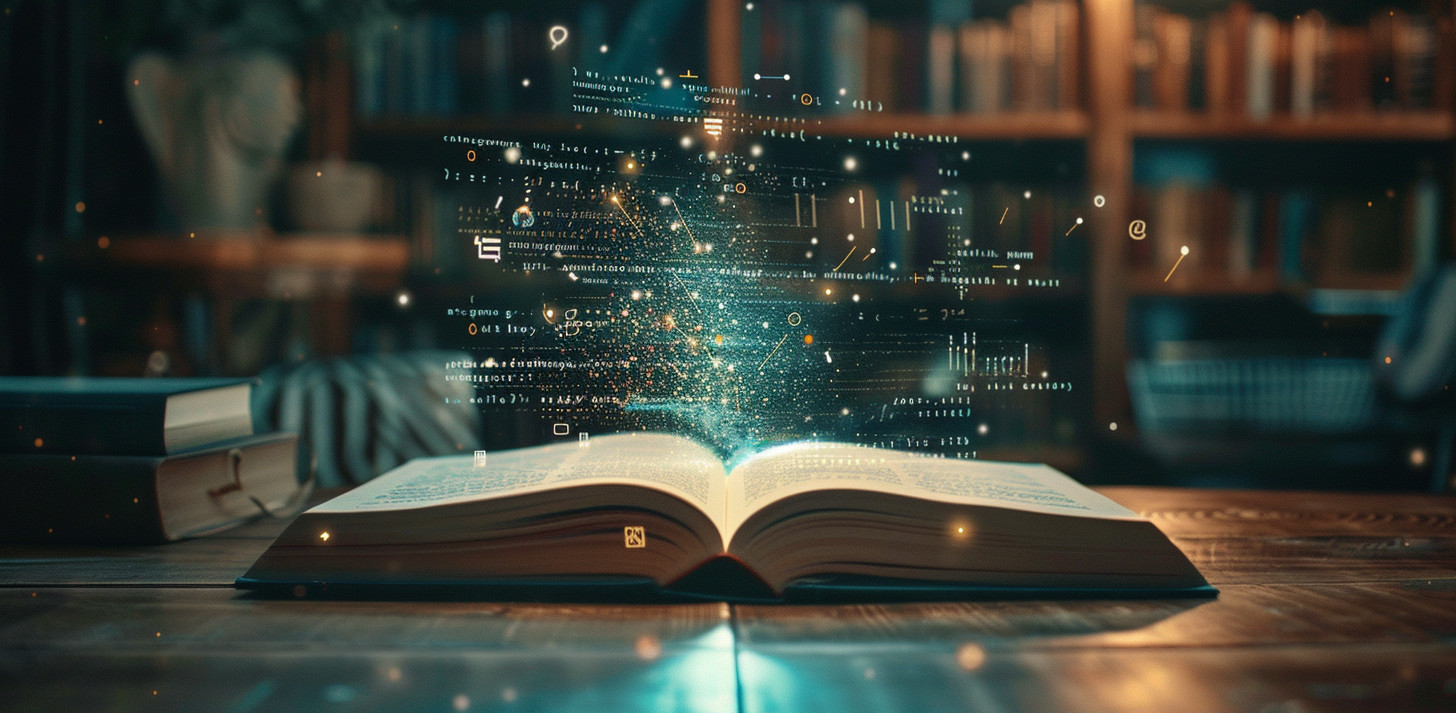AI writing, while a remarkable technological advancement, can never fully replace human creative writing because it lacks the intrinsic human qualities that imbue stories with depth and authenticity. Human creativity stems from a rich storehouse of emotions, personal experiences, and cultural contexts that AI cannot genuinely replicate. Each writer’s unique perspective and voice bring a distinct flavour to their work, crafting narratives that resonate on a deeply personal level with readers. The ability to infuse subtle nuances, irony, and profound insights into storytelling is a hallmark of human artistry, which AI, constrained by its programming and data-driven nature, can only mimic but never truly embody.
Authenticity
Human creative writing is characterised by its ability to convey complex emotions, nuanced thoughts, and rich, multileveled narratives that reflect the breadth of human experience. Writers also draw from a deep well of personal history, cultural heritage, and lived experiences, allowing them to create authentic and relatable characters, settings, and plots. This wealth of experience enables humans to infuse their stories with genuine empathy, humour, sorrow, and joy, capturing the intricate interplay of feelings that define the human condition. Moreover, the idiosyncrasies of individual writers, such as their unique voice, style, and perspective, add layers of meaning and depth to their work, creating a lacery of storytelling that is as varied and diverse as humanity itself.
Patterns
AI pieces together a story from its database by analyzing vast amounts of text data and identifying patterns, structures, and stylistic elements typical of various genres and authors. Utilising sophisticated algorithms and machine learning techniques, AI models like GPT-4 generate text by predicting the most likely sequence of words and phrases based on the input they receive. They rely on probabilistic associations between words and concepts, drawing from a comprehensive repository of information to construct coherent and contextually appropriate narratives. Despite this capability, AI-generated stories often lack the deep, intuitive understanding of themes and emotions that human writers naturally incorporate, as AI operates within the confines of pre-existing data and programmed rules rather than genuine creativity and personal insight.
Fresh insight
AI makes use of trends to produce a pseudo authenticity by analysing and emulating the popular themes, language styles, and content that are currently prevalent in its vast dataset. This process involves identifying and replicating the patterns and topics that resonate with large audiences, thereby crafting text that feels relevant and timely. However, this reliance on trends also means that AI often regurgitates populist notions and prevailing biases present in the data it was trained on. Consequently, while AI-generated content may seem authentic and aligned with current societal sentiments, it frequently lacks the critical perspective and originality that come from human creativity and independent thought, potentially perpetuating stereotypes and reinforcing existing biases instead of challenging them or offering fresh insights.
An artificial flood
The emerging problem for humanity with the ease of AI writing is the overwhelming flood of content it generates, saturating the market and making this deluge of machine-produced text seem normal. As AI becomes more adept at mimicking human writing styles, it churns out vast quantities of articles, stories, and social media posts at an unprecedented rate, diluting the quality and originality of available content. This inundation risks desensitising readers and devaluing the craftsmanship of human writers, who pour their unique experiences, emotions, and creativity into their work. The normalisation of AI-generated content threatens to create a landscape where genuine, thoughtful, and innovative human writing is overshadowed by the sheer volume of algorithmically produced material, potentially stifling true literary and intellectual growth.
The classics
The classics, written by creative humans, are becoming more important than ever as they serve as a timeless testament to the uniqueness of the human experience. These enduring works capture the essence of humanity through intricate storytelling, profound insights, and the richness of emotions and perspectives that only human writers can convey. In an era increasingly dominated by AI-generated content, the classics remind us of the unparalleled depth, authenticity, and originality that characterise human creativity. They offer a benchmark of literary excellence and a source of inspiration, highlighting the irreplaceable value of personal experiences, cultural contexts, and the nuanced understanding of life that humans bring to their writing. As we navigate the digital age, these masterpieces become essential anchors, preserving the legacy of genuine human expression and the art of storytelling.
Homogenisation
The homogenisation of society poses a real danger as the wave of AI-generated content increasingly influences our cultural and intellectual landscapes. As AI systems rely on vast datasets to generate text, they tend to reproduce and amplify prevailing trends, biases, and popular narratives, leading to a convergence of ideas and a reduction in diversity of thought. This results in a cultural landscape where unique voices and unconventional perspectives are overshadowed by the algorithmically favoured mainstream, potentially stifling creativity and critical thinking. The risk is that society may become more uniform in its tastes, opinions, and expressions, losing the richness that comes from a diverse array of human experiences and viewpoints. In such a homogenised environment, the potential for innovation and meaningful discourse diminishes, threatening the vibrant pluralism that drives progress and enriches our collective human experience.
Algorithms
It is crucial for humans to pursue creativity without relying solely on algorithms to ensure that the creative arts remain vibrant and dynamic. Human creativity is the lifeblood of cultural and artistic expression, fuelled by personal experiences, emotions, and the unique capacity for innovation and introspection. While AI can be useful as a tool, by engaging in creative endeavours independently, humans can preserve the authenticity and diversity of artistic expression, fostering originality and pushing the boundaries of what art can achieve. This pursuit nurtures critical thinking, empathy, and the exploration of new ideas, all of which are essential for the continued evolution and richness of the arts.
